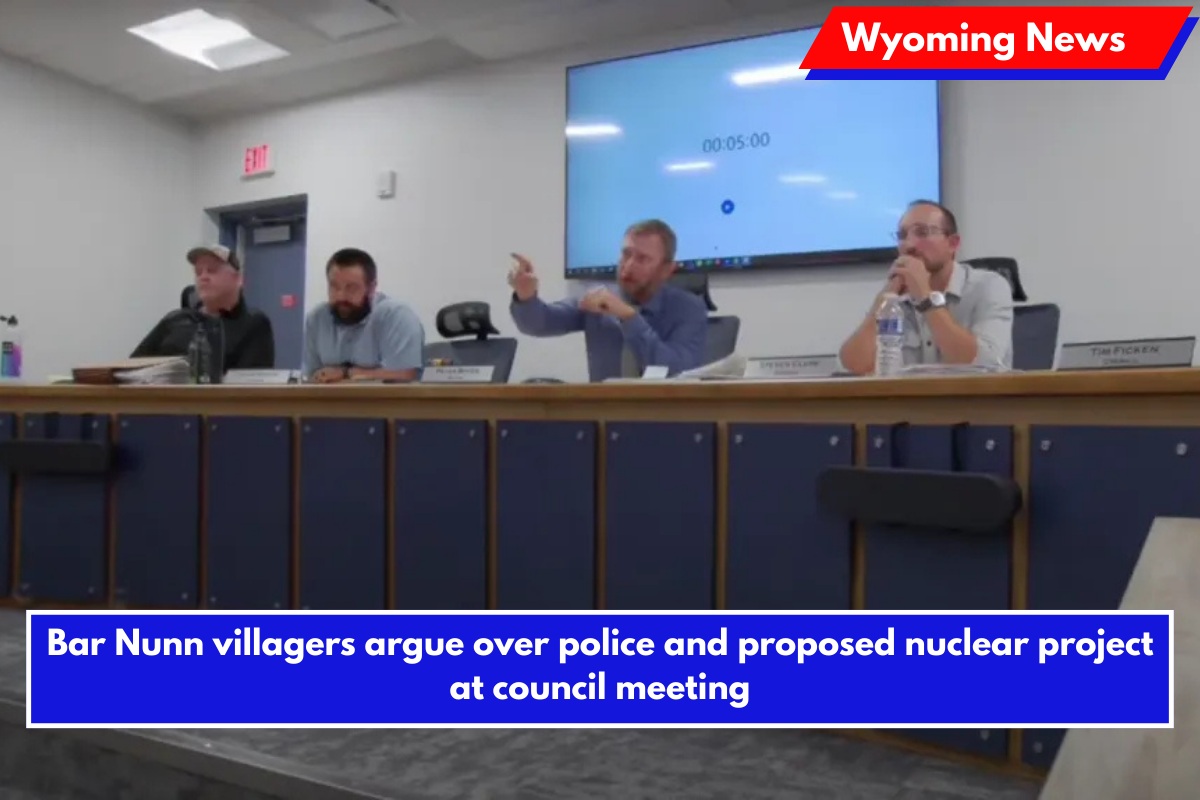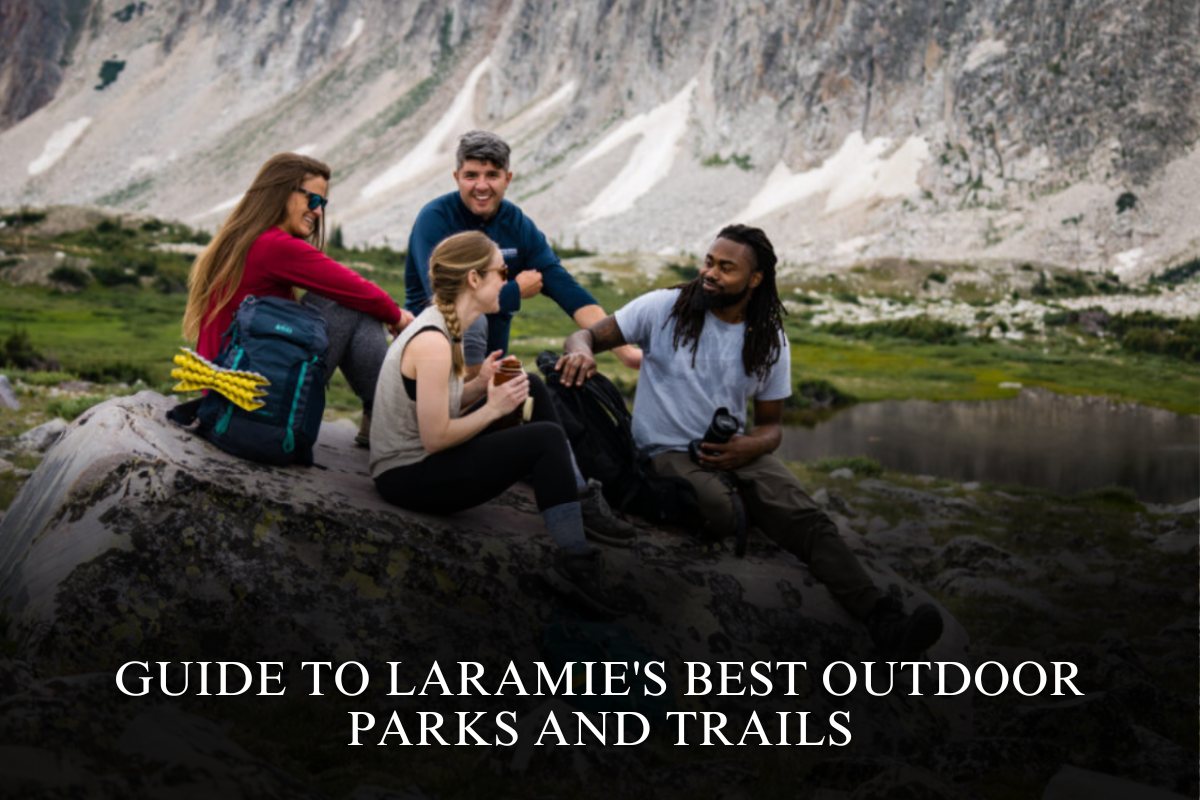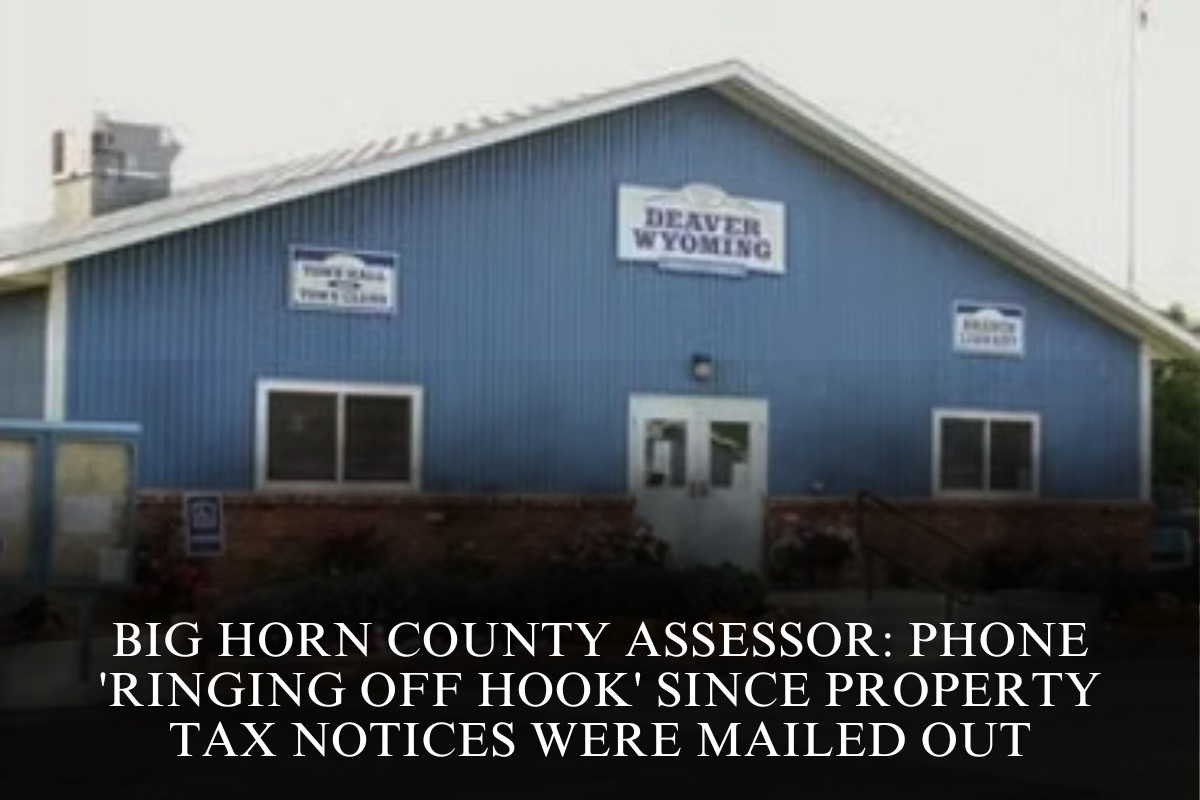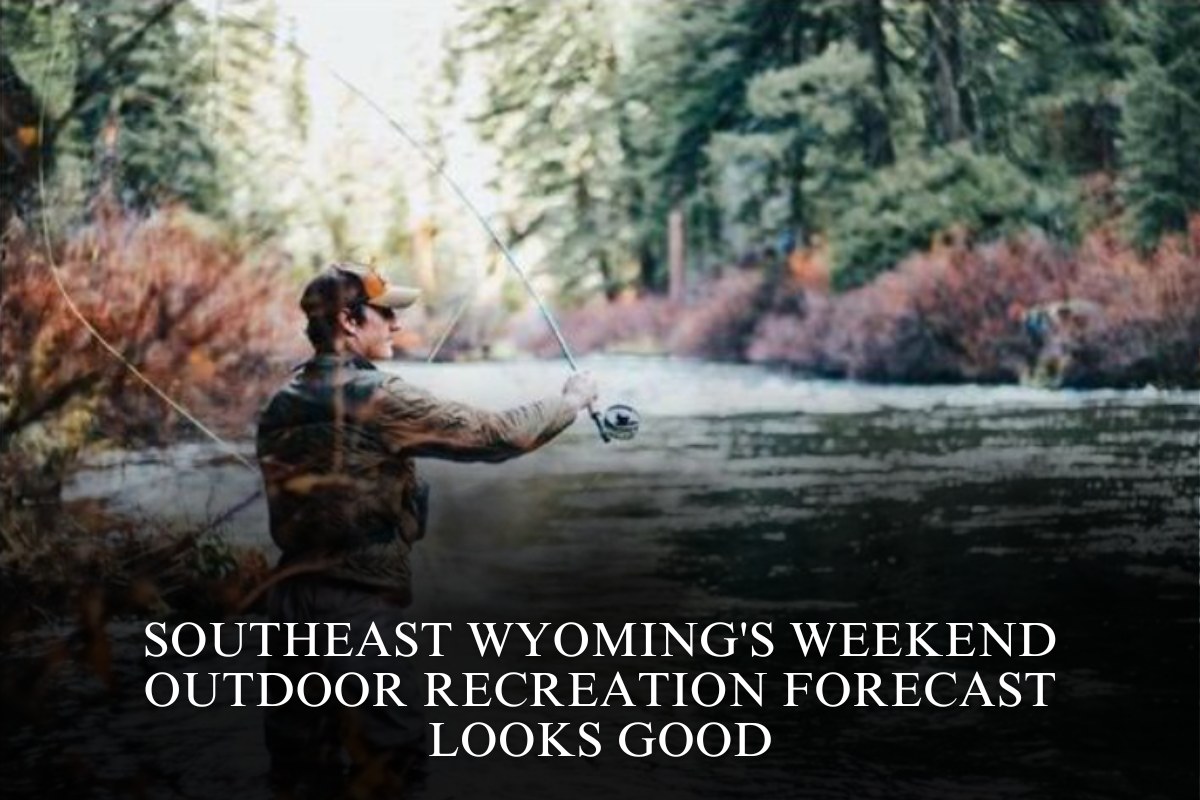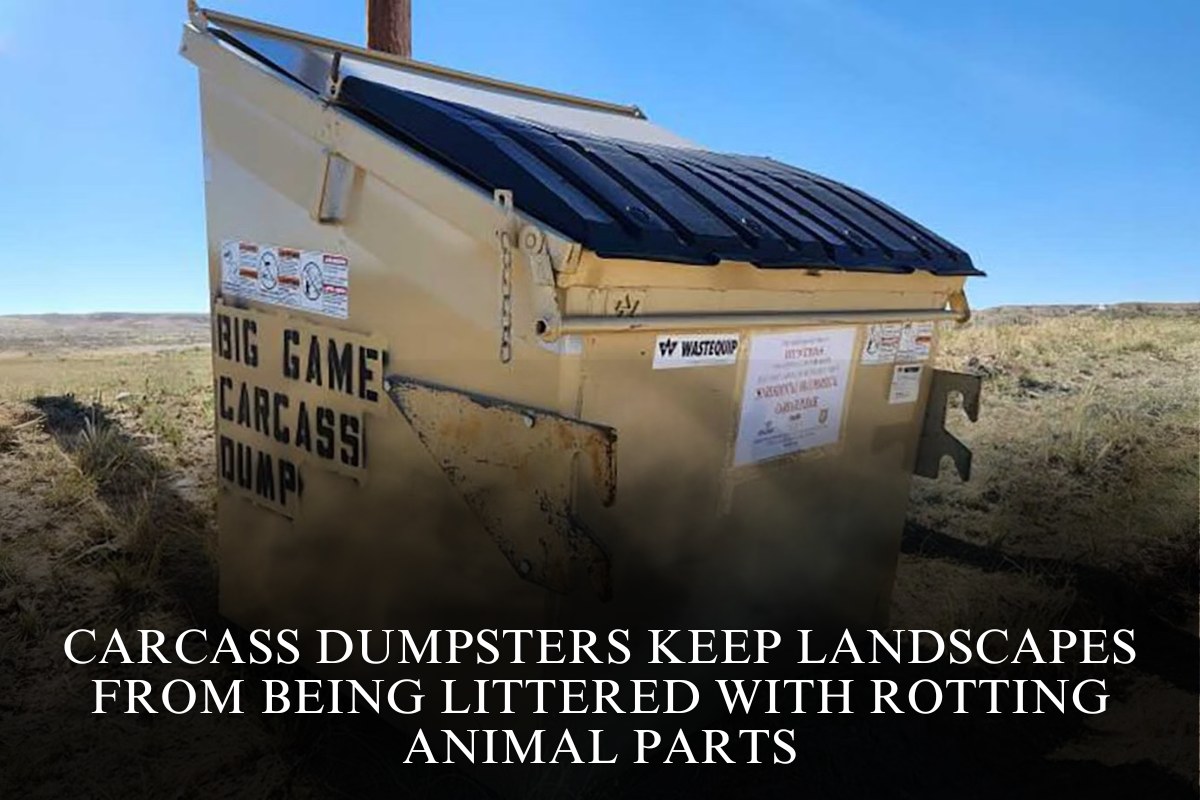BAR NUNN, Wyo. — A packed Bar Nunn Town Council meeting Tuesday night revealed deep community divisions over two major issues: a proposed town police force and a potential nuclear facility nearby.
Residents and a state representative expressed strong opinions and posed pointed questions to the council. The evening’s public comment session was divided, with speakers given time to discuss town or other issues before going nuclear.
State Rep. Bill Allemand, who represents House District 58, which includes Bar Nunn, addressed the council during both sessions.
He and Mayor Peter Boyer had a heated exchange that escalated to the point where the mayor threatened to remove Allemand from the chambers.
The night’s most surprising news came near the end, when a representative from Advance Casper announced that a $25 million infrastructure grant application for the Radiant project had been withdrawn.
Justin Farley, CEO of Advance Casper, informed the council that the Economic Development Joint Powers Board voted two weeks ago to withdraw its application to the Wyoming Business Council.
The grant was intended to fund infrastructure development, including sewer, water, and a new public road, with the goal of benefiting Radiant as well as attracting other companies.
Radiant has stated that it has the funds to build the infrastructure itself, but that the grant influenced the decision to select the site north of Bar Nunn.
General public comment
During the general public comment period, the topic of establishing a town police force elicited a variety of responses. Allemand spoke out against the idea, citing high costs and suggesting that the town increase its funding for the sheriff’s office.
When the council appointed Steve Sheridan as interim police chief in early August, Councilor Dan Sabrosky defended the decision, citing the Natrona County Sheriff’s Office’s reduced patrols in Bar Nunn.
One resident shared a personal story about how the sheriff’s office responded slowly during a domestic violence incident, which is why he supports a local force. He added that it would help to reduce vandalism in local parks and allow officers to get to know the community’s youth.
Another spoke with Sheriff John Harlin, who stated that the sheriff’s office is willing to serve the town regardless of a service agreement, and that scheduling conflicts with the town’s municipal court were the most pressing issue for deputies.
She also challenged the council’s previous statement that the sheriff “wants his deputies back,” claiming that her conversation with the sheriff leads her to believe the council told “outright lies.”
Jenifer Hopkins, a resident and Natrona County School District 1 Trustee, questioned Boyer about his relationship with the interim police chief, claiming she heard the mayor say something like “I have a friend in mind” during the April 15 town council meeting on developing a new police department.
Boyer stated that he first became aware of Sheridan years before joining the council, when there was talk of hiring a police chief during the previous mayor’s term. He claimed Sheridan gave him his card, and they remained in “loose contact.”
“So, if I called him a friend, it was because I was being cordial,” Boyer told me.
Fire Chief Sonnie Zahara took the podium as a resident to express his support for the police department, stating that deputies’ jobs are to provide law enforcement support for a county of 5,376 square miles, roughly the size of the state of Connecticut.
He stated that when a firework was shot through his RV window and he called to report the crime to a deputy, dispatchers informed him that none were available “because they were too busy.”
During the discussion, frequent speaker Michael Newquist reminded the council that its meeting minutes are factual, not hearsay, and that the public will expose any councilmember whose company receives a contract for any work related to building or working with Radiant Industries.
“This is my only warning to you all,” he told us.
Other public comments included a resident requesting that the council consider ways for those unable to physically attend meetings to participate remotely.
Nuclear Public Comment
Long before Boyer opened the floor for comments about Radiant and nuclear energy, Councilor Tyler Martin said he’s had numerous conversations with residents and officials regarding the proposed facility. He described the situation as complex, with differing opinions among residents who are informed about the project.
“One of the most common phrases I’ve heard is ‘the people are for this’ or ‘the people are against it’, so do what we’re asking, and therein lies the complexity. There are some who are against, some who are for, and some who are neutral, and we genuinely want to hear you,” Martin said.
He also announced plans for a future podcast in which he will question Radiant representative Matt Wilson, as well as a debate in which he, Allemand, and Wilson will provide more information to the public.
During the public comment period, Marshall Hood, a retired metallurgical engineer with experience handling nuclear weapons, asked technical questions about Radiant’s business plan.
He questioned the logistics of transporting 70-ton microreactors, claiming that they would require a “low body and a whole lot of extra axles,” and that local roads are not designed for such loads. He also described the fuel as “pretty hot stuff” and stated that from his perspective as a project engineer, Radiant’s operational setup appeared “quite poorly set up.”
Hopkins announced that she will conduct an anonymous community survey of 350 homes to determine how residents feel about the future of Bar Nunn, including questions about growth and the Radiant project. She invited those present to complete the survey, and she intends to present the results at the next council meeting.
Resident Robert Kwasnicki suggested that the council hold a non-binding advisory referendum on a future ballot to obtain a clear mandate from the town’s residents.
The proposed referendum question is: “Are you for or against Radiant Industries locating operations, manufacturing, and/or nuclear waste storage within a 30-mile radius of the Bar Nunn town border?”. He claimed that this would “lower the temperature” and provide “democratic legitimacy for whatever comes next.”
When asked for clarification on the referendum process, Town Attorney Patrick Holscher responded that municipal referendums in Wyoming are difficult and must typically be tied to a general election.
A resident speaking out against the project stated that the community should not be forced to become “nuclear experts just to defend their right to say no.” She expressed concern about the transportation of “highly, highly dangerous” spent nuclear fuel and stated that the public deserves information about containment and emergency measures.
Allemand claimed there is a “problem of distrust” between residents and the council. Citing a poll he conducted that revealed 72% of residents opposed the project, he told the council, “the people behind me, they are your citizens, they’re the people who voted for you, and they do not like what you’re doing.” Allemand stated that while he is not opposed to jobs, he will oppose nuclear waste storage, saying, “That is a hill I will die on.”
Greyson Buckingham, an attorney and entrepreneur in the uranium industry, spoke in favor of the project. He stated that he has dealt with the Nuclear Regulatory Commission and described them as “very, very strict and tough to deal with.” He argued that Wyoming must remain “open for business” and that modern nuclear technology is smaller and safer than in the past.
Devin Olson, another speaker, agreed with Radiant and framed the issue in terms of property rights. He stated that the private property owner has the right to sell, and Radiant has the right to operate a business “so long as they do not endanger the public.”
